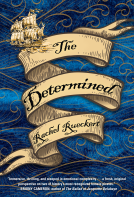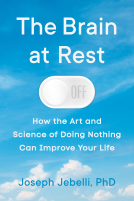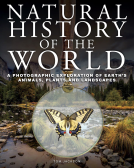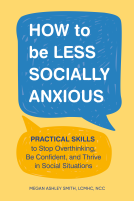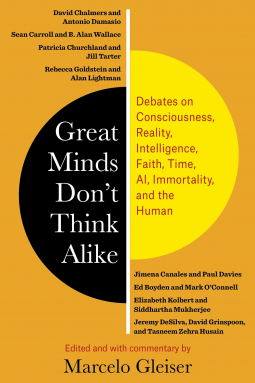
Great Minds Don’t Think Alike
Debates on Consciousness, Reality, Intelligence, Faith, Time, AI, Immortality, and the Human
by Edited and with commentary by Marcelo Gleiser
This title was previously available on NetGalley and is now archived.
Send NetGalley books directly to your Kindle or Kindle app
1
To read on a Kindle or Kindle app, please add kindle@netgalley.com as an approved email address to receive files in your Amazon account. Click here for step-by-step instructions.
2
Also find your Kindle email address within your Amazon account, and enter it here.
Pub Date Feb 08 2022 | Archive Date Apr 13 2022
Talking about this book? Use #GreatMindsDontThinkAlike #NetGalley. More hashtag tips!
Description
Great Minds Don’t Think Alike presents conversations among leading scientists, philosophers, historians, and public intellectuals that exemplify openness to diverse viewpoints and the productive exchange of ideas. Pulitzer and Templeton Prize winners, MacArthur “genius” grant awardees, and other acclaimed writers and thinkers debate the big questions: who we are, the nature of reality, science and religion, consciousness and materialism, and the mysteries of time. In so doing, they also inquire into how uniting experts from different areas of study to consider these topics might help us address the existential risks we face today. Convened and moderated by the physicist and author Marcelo Gleiser, these public dialogues model constructive engagement between the sciences and the humanities—and show why intellectual cooperation is necessary to shape our collective future.
Contributors include David Chalmers and Antonio Damasio; Sean Carroll and B. Alan Wallace; Patricia Churchland and Jill Tarter; Rebecca Goldstein and Alan Lightman; Jimena Canales and Paul Davies; Ed Boyden and Mark O’Connell; Elizabeth Kolbert and Siddhartha Mukherjee; Jeremy DeSilva, David Grinspoon, and Tasneem Zehra Husain.
A Note From the Publisher
Advance Praise
"In Great Minds Don’t Think Alike, leading intellectual Marcelo Gleisner brings together prominent scientists and humanists to discuss some of the key questions of our age. Not only do these conversations provide important new insights into pressing issues, they also demonstrate the power of cross disciplinary perspectives, and offer a model of civil and fruitful dialogue."
Peter Harrison, author of The Territories of Science and Religion
Available Editions
| EDITION | Other Format |
| ISBN | 9780231204118 |
| PRICE | $19.95 (USD) |
Average rating from 10 members
Featured Reviews
 Reviewer 725763
Reviewer 725763
This is a book of debates between leading thinkers, providing diverse views on a variety of subjects. The intersectionality of ideas leads to interesting insights.
Thanks, NetGalley, for the ARC I received. This is my honest and voluntary review.
This book represents a set of transcripts of eight debates organised by the Institute for Cross-Disciplinary Engagement at Dartmouth College and moderated by professor of physics and astronomy, Marcelo Gleiser. All debates were organised over the past five years, bringing together scientists and humanists to engage in highly constructive discussions in such fascinating topics as the mystery of consciousness, the nature of reality and the future of humanity in the age of AI, our own mortality and that of our own warming planet. Contributors include David Chalmers, Antonio Damasio, Sean Carroll and Paul Davies who I had previously heard speaking on podcasts or whose book I have read books . The discussions pit representatives of the sciences and humanities against each other, although when I say against each other I am doing the debates a severe injustice. The discussions are all deeply respectful and in no way become combative or argumentative.
The debates are all set up in a similar fashion where each speaker makes opening remarks on the subject following which the debaters are invited to ask each other questions to tease out their dissimilar points of view. The debaters do not necessarily disagree with each other per se, but their positions usually tend to augment each others' stance. All involved are deeply eloquent, intelligent and provide huge insight to their respective topics. I found this setup enhanced the overall conversation: humanities and science are not simply talking at each other or speaking to different audiences, but with each other allowing for a true augmentation of values to science. This kind of intellectual cooperation, in my view, will be increasingly necessary to shape our collective evolving future as our scientific understanding and possibilities with AI grow exponentially.
I finished the book with my brain fizzing with excitement. I was continuously taking notes for myself and scouring the Internet to find previous works of the different debaters to further follow up on their topics of discussion. This book is highly recommended for anybody who is looking to further their understanding on the current frontiers of our scientific knowledge and the questions which its further evolution raises for humanity and which cannot be answered by the sciences alone.
Readers who liked this book also liked:
Megan Ashley Smith, LCMHC, NCC
Health, Mind & Body, Nonfiction (Adult), Self-Help
Mariam Naiem
Comics, Graphic Novels, Manga, History, Politics & Current Affairs

